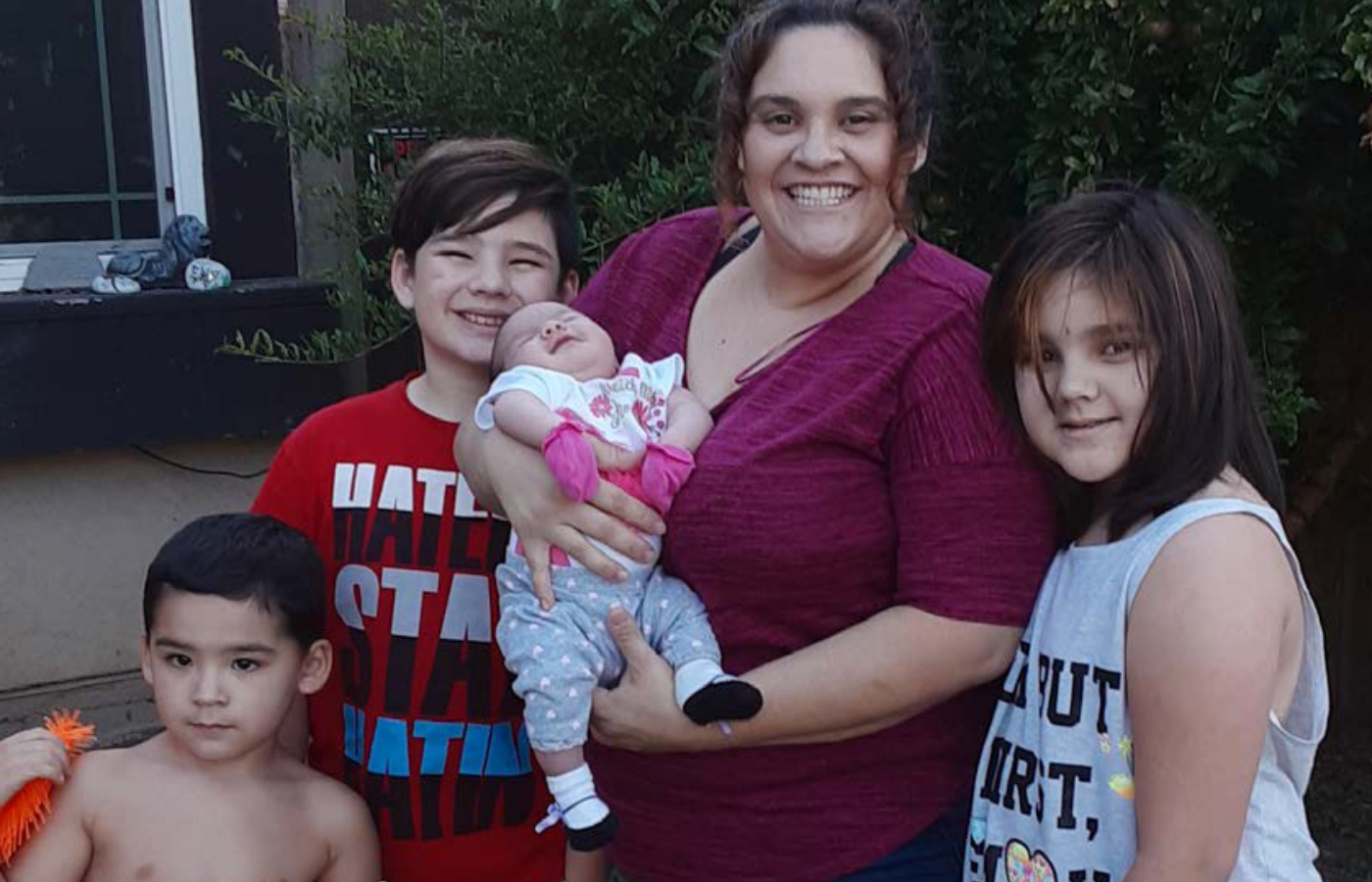The DeGracia Family's Journey Through the Early Identification and Intervention System
Brief • Sep 15, 2020

Brief • Sep 15, 2020

Summary
Leticia DeGracia is the mother of four young children in Sacramento. Two of her children, Jaqueline and Brandon, were diagnosed with autism spectrum disorder (ASD) around two years old. This brief details Leticia's journey through California's Early Identification and Intervention System with both children. Leticia faced challenges in getting her son screened early and in finding in-network specialists using her employer's health insurance.
“In my experience, the system unlocks once you demand and advocate for your kids. It should not be this complicated,” Leticia noted.
Leticia DeGracia is the mother of four young children in Sacramento, where she worked as a phlebotomist before going on leave to take care of her newborn. Two of her children, Jaqueline and Brandon, were diagnosed with autism spectrum disorder (ASD) around two years old. Leticia knew that early intervention for her children was essential, so she researched and learned everything she could about the services Jaqueline and Brandon should receive.
Given her experience seeking an ASD diagnosis for her older daughter Jaqueline, Leticia noticed when Brandon began exhibiting signs. Although her pediatrician wanted to wait to get Brandon assessed, Leticia trusted her instinct and sought out specialists to do an assessment. She knew having a diagnosis would give Brandon access to additional services and Medi-Cal coverage. However, Leticia faced challenges finding in-network specialists through her employer’s insurance, which slowed down the process. Leticia had to spend numerous days off work making phone calls to navigate enrollment and coverage.
Jaqueline and Brandon (now ages 8 and 4) are both receiving services and doing well. However, the process of making sure they are receiving all the services they should was, and at times continues to be, very stressful for the family. “In my experience, the system unlocks once you demand and advocate for your kids. It should not be this complicated,” Leticia noted. The ongoing COVID-19 pandemic has increased stress about job and insurance stability for the DeGracias, as well as many other families in California. The DeGracias’ story highlights the proactive approach many families must take in order to receive appropriate screening and services for their children.
Jaqueline’s Age | Family Experience | System |
|---|---|---|
18 months | Leticia’s grandfather mentions that Jaqueline doesn’t make eye contact. The family soon starts noticing other things in her behavior that are concerning. Leticia mentions these concerns to her pediatrician, who conducts a developmental screening. The screening indicates a delay, so the pediatrician refers Leticia to the Regional Center and to the MIND Institute at UC Davis for an autism spectrum disorder (ASD) assessment. | Primary Care |
20-21 months | The Regional Center contacts Leticia and does another assessment that shows Jaqueline is eligible for Early Start (early intervention). | Regional Center |
24 months | Jaqueline begins receiving occupational and speech therapy once a week for 30 minutes each through the Regional Center. | Regional Center |
24 months | Jaqueline has an assessment at the UC Davis’ MIND Institute and is diagnosed with ASD. | Specialist |
26 months | Jaqueline was offered to participate in autism-specific early intervention programs through UC Davis. | Specialist |
36 months | Leticia applies for Medi-Cal for Jaqueline to get copayment support, but is denied. | Medi-Cal |
36 months | The Regional Center attempts to cut services for Jacqueline because she was transferred to the school district. Leticia researches her options and learns that under the Lanterman Developmental Disabilities Services Act, Jacqueline is still eligible for services. | Regional Center |
Brandon’s Age | Family Experience | System |
|---|---|---|
22 months | Leticia notices that Brandon is not talking and is showing other signs of ASD. She brings her concerns to Brandon’s pediatrician, and the pediatrician tells her to wait and see how things progress. | Primary Care |
24 months | The family’s insurance provider changes. Leticia wants to get Brandon assessed for ASD, but the new insurance plan doesn’t have an in-network pediatric psychologist in the Sacramento area. UC Davis is not in network, so she can’t go to the same doctors Jacqueline saw. Leticia is told that she must drive to San Francisco, 2 hours away from home, for an assessment. Leticia knows it will be hard for Brandon to go through an accurate assessment after the long drive to San Francisco. | Private insurance |
28 months | Brandon sees an in-network neurologist. The neurologist diagnoses him with global delays, ASD, and oppositional defiant disorder. However, the family’s insurance plan and the Regional Center still needed the diagnosis to come from a pediatric psychologist. | Specialist |
30 months | Leticia figures out a way to see a local specialist through her job’s employee assistance plan (EAP), which allows for six behavioral health visits for her and her family at no cost. She finds a pediatric psychologist at UC Davis who is contracted through the EAP to assess Brandon. | Employee assistance plan (EAP) |
30 months | Leticia applies for Medi-Cal for Brandon to get assistance with copayments. Paperwork and filing errors at the Medi-Cal office slow down the process. | Medi-Cal |
30 months | The Regional Center begins providing occupational and speech therapy for Brandon. | Regional Center |
36 months | The pediatric psychologist from UC Davis diagnoses Brandon with ASD. Private insurance is not able to provide ABA (Applied Behavior Analysis) right away. The family also experiences long wait times for occupational and speech therapy through private insurance. | Specialist |
36 months | Brandon is approved for Medi-Cal and begins receiving ABA (Applied Behavior Analysis). | Medi-Cal |